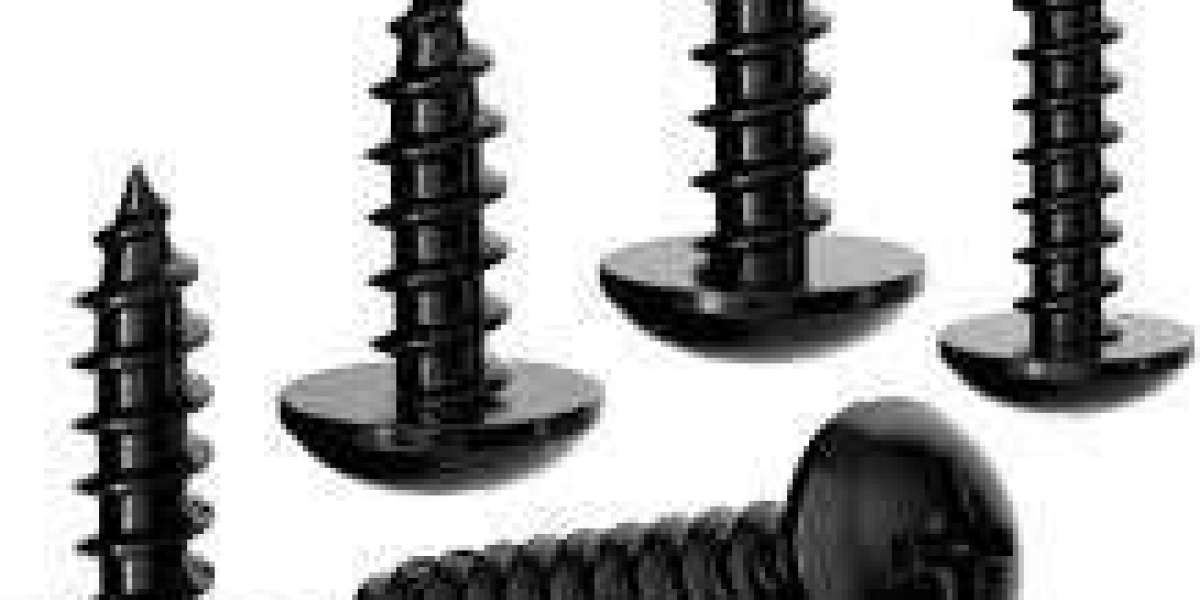Fasteners play a crucial role in various industries, from construction to manufacturing. Among the many types of fasteners available, round head tapping screws are widely used for their versatility and ease of use. In this comprehensive guide, we will explore everything you need to know ab
Fasteners play a crucial role in various industries, from construction to manufacturing. Among the many types of fasteners available, round head tapping screws are widely used for their versatility and ease of use. In this comprehensive guide, we will explore everything you need to know about round head tapping screw fasteners, including their design, applications, advantages, and tips for proper usage. I. Understanding Round Head Tapping ScrewsRound head tapping screws are self-tapping fasteners that feature a rounded top surface and a sharp, pointed end. They are designed to create their own mating threads within materials, eliminating the need for pre-drilled holes. This makes them ideal for fastening materials like wood, plastic, and sheet metal.1. Design and Components:Round head tapping screws consist of several key components:- Head: The rounded top surface of the screw, which provides a larger bearing area and distributes the load evenly.- Shank: The body of the screw, which is usually threaded for self-tapping purposes.- Point: The sharp, pointed end of the screw that allows it to penetrate the material.- Threads: The spiraling ridges along the shank, which engage with the material and create the mating threads.2. Types of Round Head Tapping Screws:There are several variations of round head tapping screws available, each designed to suit specific applications. Some common types include:- Standard Round Head Tapping Screws: These screws have a standard design with a rounded head and a self-tapping shank. They are versatile and can be used in various applications.- Thread-Forming Round Head Tapping Screws: These screws have unique thread designs that allow them to create mating threads without cutting or removing material.- Thread-Cutting Round Head Tapping Screws: These screws have sharp threads that cut into the material, creating mating threads during installation.- Type AB and Type A Round Head Tapping Screws: These screws have different thread designs and are suitable for specific applications.II. Applications of Round Head Tapping Screwshttps://www.tffastener.com/Round-Head-Tapping-Screw.html find applications in various industries and sectors due to their versatility and ease of use.1. Construction and Woodworking:Round head tapping screws are commonly used in construction and woodworking projects. They are perfect for fastening wooden boards, cabinets, furniture, and other wooden structures. Their self-tapping feature allows for quick and easy installation, saving time and effort.2. Sheet Metal and HVAC:Round head tapping screws are also widely used in sheet metal fabrication and HVAC systems. They can securely fasten sheet metal components, ducts, and ventilation systems. The sharp point and self-tapping design make them ideal for piercing through thin metal sheets without the need for pre-drilled holes.3. Electronics and Appliances:Round head tapping screws are often utilized in the assembly of electronic devices and appliances. They can secure components, enclosures, and panels, ensuring a reliable and sturdy construction. Their rounded head design also provides a neat and finished appearance.4. Automotive and Machinery:In the automotive and machinery industries, round head tapping screws play a vital role. They are used to fasten various components, including engine parts, interiors, and body panels. Their self-tapping ability and strong holding power make them suitable for withstanding vibrations and mechanical stresses.III. Advantages of Round Head Tapping ScrewsRound head tapping screws offer several advantages that make them a popular choice in many applications.1. Self-Tapping Capability:The self-tapping feature of these screws eliminates the need for pre-drilled holes. This saves time and effort during installation, making them convenient and efficient to use.2. Versatility:Round head tapping screws can be used in a wide range of materials, including wood, plastic, and sheet metal. This versatility allows for a broader range of applications, making them a go-to option for many industries.3. Strong Holding Power:Due to their design and thread engagement, round head tapping screws offer excellent holding power. They create secure and reliable connections, ensuring the longevity and stability of the fastened components.4. Neat Appearance:The rounded head design of these screws provides a neat and finished appearance. This is particularly important in applications where aesthetics matter, such as furniture, electronics, and appliances.IV. Tips for Proper Usage of Round Head Tapping ScrewsTo ensure optimal performance and longevity, here are some tips for proper usage of round head tapping screws:1. Material Selection:Choose the appropriate material for the screw based on the application. Consider factors such as the material being fastened, environmental conditions, and load requirements. Stainless steel screws are often preferred due to their corrosion resistance and durability.2. Pilot Holes:Although round head tapping screws are designed to be self-tapping, it is recommended to create pilot holes in hard materials or when working near edges. Pilot holes ensure accurate alignment and prevent the material from splitting or cracking.3. ProperTorque:When installing round head tapping screws, it's important to apply the proper torque. Over-tightening can strip the threads or damage the material, while under-tightening can result in loose connections. Follow the manufacturer's recommendations for the correct torque value based on the screw size and material.4. Pre-Drilling in Metal:When working with metal, pre-drilling may be necessary to ensure proper thread engagement. Use a drill bit slightly smaller than the screw's shank diameter to create pilot holes. This will facilitate easier screw insertion and prevent the metal from deforming.5. Screw Length:Choose the appropriate screw length to ensure adequate thread engagement. The screw should penetrate the material fully without protruding excessively. This helps maintain the integrity of the connection and prevents the screw from loosening over time.6. Consider Environmental Factors:If the application involves exposure to moisture, chemicals, or extreme temperatures, select screws that are specifically designed for such conditions. These screws are often coated or made from materials that offer enhanced corrosion resistance and durability.7. Use Proper Tools:To ensure a secure and accurate installation, use the appropriate tools for screwing in round head tapping screws. This may include a power drill or screwdriver with the correct bit size and type. Using the wrong tools can lead to damage or improper installation.ConclusionRound head tapping screws are versatile and reliable fasteners that find applications in various industries, from construction to electronics. Their self-tapping capability, strong holding power, and neat appearance make them a popular choice for many professionals. By understanding their design, applications, advantages, and following proper usage tips, you can maximize the performance and effectiveness of round head tapping screws in your projects. So, next time you need to fasten materials together, consider using round head tapping screws for a secure and efficient connection.Understanding the Role of Round Head Tapping Screws in Fastening Applications
 Планируете заказать аттестат у надежного исполнителя? Заходите!
Планируете заказать аттестат у надежного исполнителя? Заходите!
 Как возможно быстро приобрести аттестат в онлайн магазине
Как возможно быстро приобрести аттестат в онлайн магазине
 Taste, Explore, Discover the Must-Visit Places in Kuala Lumpur for Every Type of Traveler
By Zahra zaik
Taste, Explore, Discover the Must-Visit Places in Kuala Lumpur for Every Type of Traveler
By Zahra zaik Интернет магазин, в котором возможно заказать диплом университета
Интернет магазин, в котором возможно заказать диплом университета
 Ценообразование дипломов - обзор специалистов
Ценообразование дипломов - обзор специалистов



